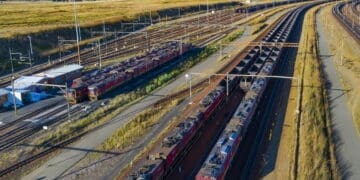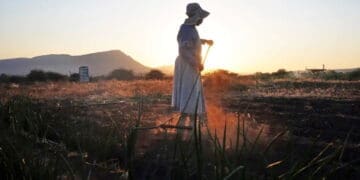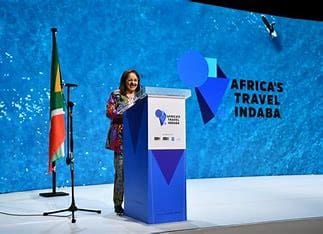By Nosihle Zulu
As Africa’s premier tourism trade show prepares to open its doors on 12 May, small businesses stand to gain unprecedented access to international markets, but only if they can afford to attend.
For Msizeni Mngadi, CEO of Indlondlo Cultural Village in KwaZulu-Natal’s Valley of 1000 Hills, last year’s Africa’s Travel Indaba marked a breakthrough. His non-profit organisation, which showcases and teaches traditional Zulu heritage through dance and performance, connected with global buyers, and showcased its offerings and built valuable business networks.
However, this year despite receiving an invitation, financial constraints are casting doubt over their ability to return.
“It was a powerful platform for growth, exposure and networking,” Mngadi said.
“We were able to explain our cultural offerings to buyers from different countries and connect with other exhibitors to gain knowledge.”
However, this year, despite receiving an invitation to return, Indlondlo is uncertain whether it will be able to attend. The challenge is financial constraints, especially for travel and logistics.
Last year, the organisation’s participation was made possible through funding from Tourism KZN. Without similar support, Mngadi fears missing out on one of the few platforms that offers meaningful global exposure to small tourism enterprises.
His story is not unique. As the indaba prepares to welcome thousands of stakeholders from across the globe, there’s growing concern that many SMMEs may be left behind because of the barriers.
Ironically, the trade show has never offered more promise. Taking place from 12 to 15 May at the Inkosi Albert Luthuli International Convention Centre in Durban, this year’s indaba is set to be one of the most high-profile yet.
Organisers have already seen a 14.4% rise in hosted buyer applications. Over 873 buyers have been vetted and approved, representing 55 countries and major markets such as the US, UK, China and India.
For SMMEs, this surge in international interest spells a wealth of opportunity.
South African Tourism COO Darryl Erasmus underscored the value of the event.
“Africa’s Travel Indaba provides an inclusive space where SMMEs can connect directly with these buyers and unlock meaningful business opportunities,” said Erasmus.
Tourism Minister Patricia de Lille echoed this sentiment during the indaba’s 2025 media launch.
She reaffirmed the department’s commitment to inclusive growth, citing the Market Access Support Programme (MASP), which is enabling 120 tourism SMMEs to exhibit at this year’s event.
“Through this programme, the department is helping SMMEs gain visibility and connect with international buyers and media,” said De Lille.
“This provides invaluable opportunities to grow their businesses and showcase the authentic and diverse offerings of our country.”
De Lille also stressed the need to level the playing field so that SMMEs, especially those from historically disadvantaged backgrounds, could participate meaningfully in the tourism economy.
A strong SMME presence at the indaba is not just symbolic; it is strategic and aimed at highlighting local experiences, crafts and innovations to a global audience.
But stories like Indlondlo’s reveal that while exhibition support is welcome, broader financial assistance remains a critical missing link.
This year’s enthusiasm is evident with 163 exhibitors from 24 African countries having confirmed participation and 95% of the exhibition floor already booked.
To meet the demand, organisers have added 400 square metres of space.
“There has never been a more exciting time to invest in African tourism,” Erasmus said.
“Africa’s Travel Indaba is the ultimate platform to unlock business opportunities and shape the future of travel on the continent.”































































